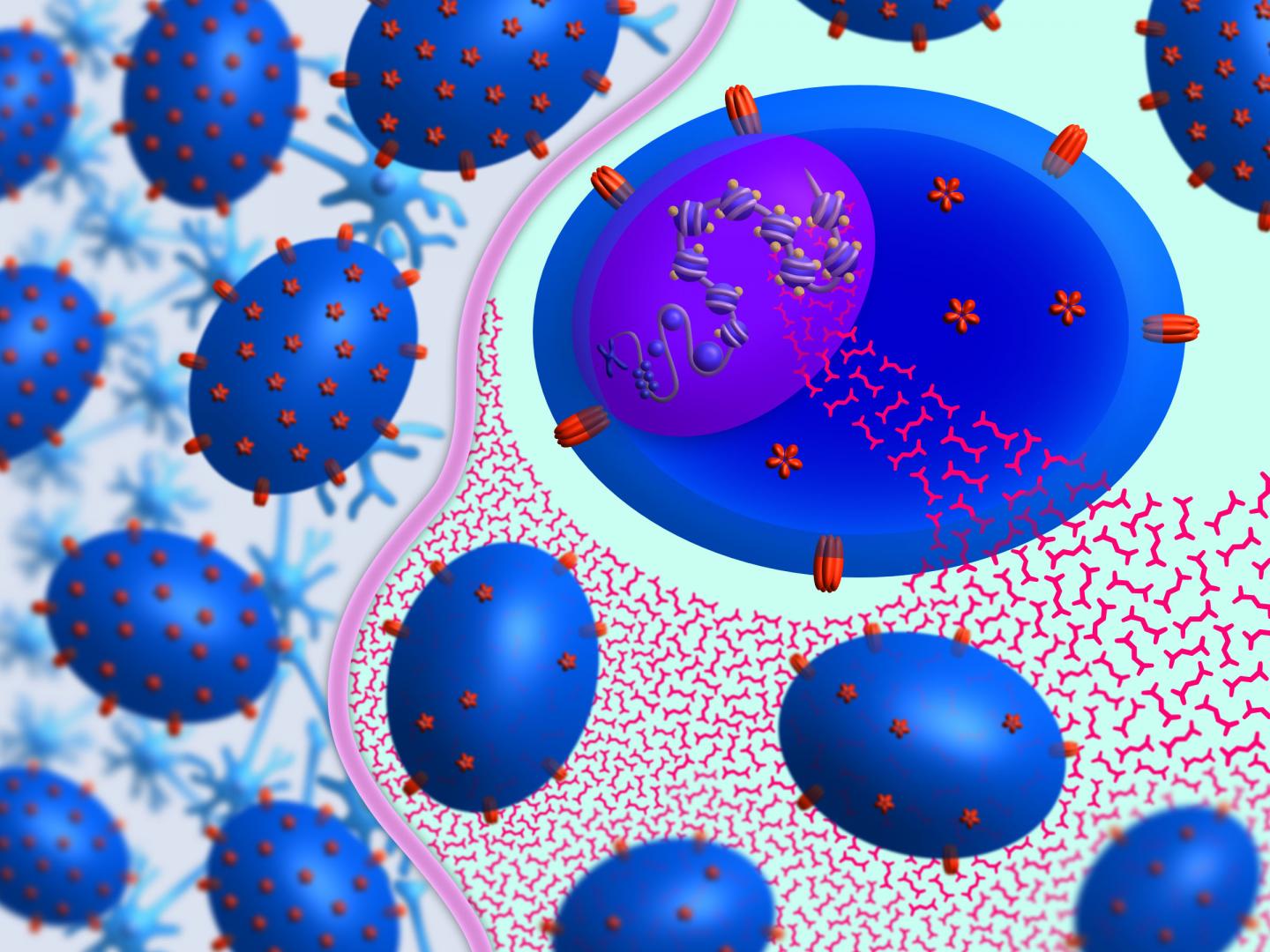The discovery could lead to novel, more specific, and more effective MS therapies and a better understanding of how the disease develops

Credit: Carter Eitreim
NEW YORK, February 28, 2019 – Understanding and mitigating the role of epigenetics (environmental influences that trigger changes in gene expression) in disease development is a major goal of researchers. Now, a newly published paper featured on the March cover of the journal Brain adds significantly to this work by detailing how metabolites can be used to inhibit epigenetic mechanisms and effectively treat a range of diseases, including multiple sclerosis (MS).
Dimethyl fumarate (Tecfidera™)–a cell-permeable metabolite in the family of fumaric acid esters (FAEs)–is an approved treatment for MS and is potentially an effective therapy for other autoimmune diseases. The precise mechanism of the drug’s action has been only partially understood, however. In their new paper, researchers at the Advanced Science Research Center (ASRC) at The Graduate Center of The City University of New York and the Icahn School of Medicine at Mount Sinai take a major step toward unraveling the mystery by identifying a possible mechanism of action for FAEs. In doing so, they also highlight new concepts that may lay the groundwork for the development of novel classes of drugs for the treatment of MS and other diseases.
Scientists believe that MS develops when epigenetic changes cause certain brain-homing immune cells–or T cells–to attack the central nervous system. In their current paper, researchers posited that FAE metabolites work by mitigating the development of certain brain-homing T cells.
“This work has given us extremely useful insight into how we might leverage the metabolic-epigenetic interplay between cells and their environment to create new immune-modulating therapies for diseases like MS,” said Patrizia Casaccia, director of the ASRC Neuroscience Initiative and a professor of genetics and neuroscience at Mount Sinai. “It may one day be possible to target and suppress production of the specific brain-homing T cells that play a role in the development of MS.”
Methodology
Researchers recruited 97 volunteers with MS that were either treatment-naïve (47), FAE-treated (35), or glatiramer acetate-treated (16). Blood samples were collected from each participant and their levels of brain-homing T cells were measured by looking at the percentages of the chemokine receptors CCR4 and CCR6, which are critical to T cell trafficking between the gut, brain, and skin. The data showed significantly lower levels of these brain-homing T cells in the FAE-treated group than in the other comparison groups.
Researchers subsequently analyzed how FAEs change the epigenetic landscape of T cells to reduce the development of these pathogenic cells. Specifically, they found that FAEs have a strong epigenetic effect on a particular DNA region in T cells that includes a micro RNA called MIR-21, which is necessary to create disease-associated brain-homing T cells. Taken together, the results suggest that the immunomodulatory effect of FAEs in MS is at least in part due to the epigenetic regulation of these specific brain-homing T cells.
Significance
“Our findings about therapeutically active metabolites have implications for the treatment of not only multiple sclerosis but also other autoimmune diseases such as psoriasis and inflammatory bowel disease, which involve the same type of T cells,” said Achilles Ntranos, lead author of the paper and a physician and neuroimmunology fellow at Mount Sinai Hospital whose work is supported by the Leon Levy Foundation and the National Institute of Neurological Disorders and Strokes. “Understanding the epigenetic effect of metabolites on the immune system will help us develop several novel strategies for the treatment of autoimmune diseases, which could help patients and physicians achieve better clinical outcomes.”
###
Organizational Attribution
Our correct name is the Advanced Science Research Center at The Graduate Center of The City University of New York. For the purpose of space, Advanced Science Research Center, GC/CUNY is acceptable. On second reference, ASRC is correct.
About the Advanced Science Research Center
The ASRC at The Graduate Center elevates scientific research and education at CUNY and beyond through initiatives in five distinctive, but increasingly interconnected disciplines: environmental sciences, nanoscience, neuroscience, photonics, and structural biology. The ASRC promotes a collaborative, interdisciplinary research culture with renowned researchers from each of the initiatives working side by side in the ASRC’s core facilities, sharing equipment that is among the most advanced available.
About The Graduate Center of The City University of New York
The Graduate Center of The City University of New York (CUNY) is a leader in public graduate education devoted to enhancing the public good through pioneering research, serious learning, and reasoned debate. The Graduate Center offers ambitious students more than 40 doctoral and master’s programs of the highest caliber, taught by top faculty from throughout CUNY — the nation’s largest public urban university. Through its nearly 40 centers, institutes, and initiatives, including its Advanced Science Research Center (ASRC), The Graduate Center influences public policy and discourse and shapes innovation. The Graduate Center’s extensive public programs make it a home for culture and conversation.
Media Contact
Shawn Rhea
[email protected]
Related Journal Article
http://dx.




